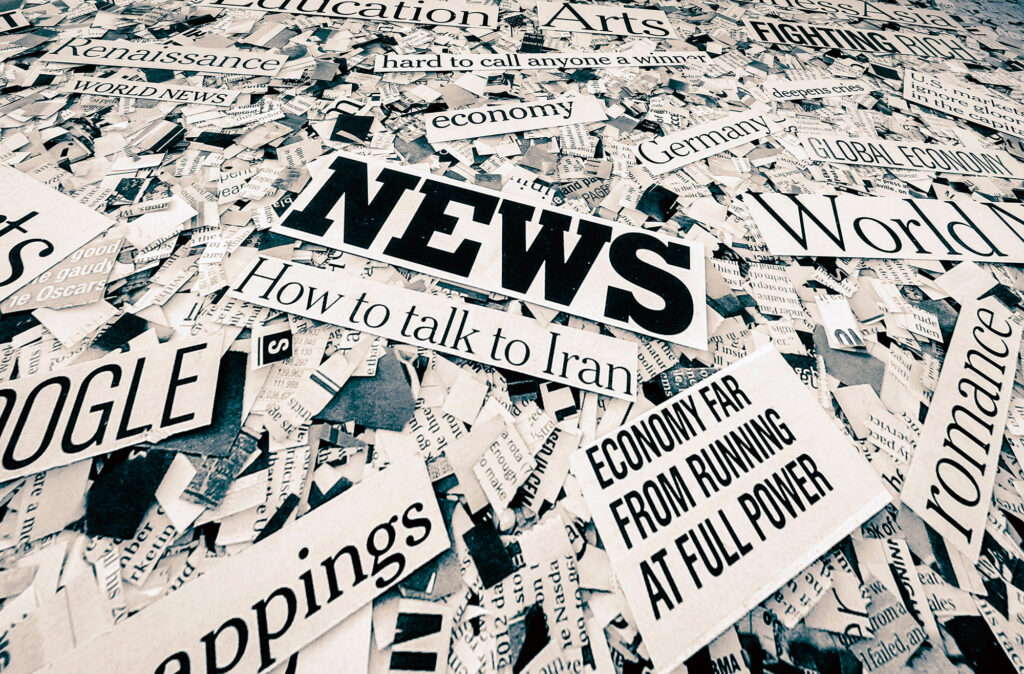SO much has been written (Thanks Tim, Fred, Dave and SRC/PRPD/Greater Public) about recent audience losses at public media news stations. It rightfully has programmers concerned, managers nervous, and revenue teams worried. Action is needed, and much of our own public service potential is under our control.
 What follows are thoughts and suggestions on taking action – on doing something. We have to respond, today and through campaign 2024, because audiences are counting on us. Nothing here is sexy or innovative, but rather a call to be brilliant on the basics of live radio in every daypart on every day.
What follows are thoughts and suggestions on taking action – on doing something. We have to respond, today and through campaign 2024, because audiences are counting on us. Nothing here is sexy or innovative, but rather a call to be brilliant on the basics of live radio in every daypart on every day.
Little of what follows is about new audiences, but some of it is. If we get sharper about serving the audiences we have and used to have, new audiences will find us more compelling and consistent when they sample what we offer.
Editorial Mix
You control what stories your stations cover. Is your newsroom starting each day working on the stories your audiences need to hear and understand, or are reporters simply sharing “what they’re working on.” Ideally, those two things line up and speak to the live listening audiences you have right now, rather than aspirational goals.
Stations have less control over the editorial mix on national shows, but they have an outsized voice and should use it. When a story runs too long, is boring, or speaks to an audience you don’t serve, tell the network or show that made it. When they surprise you with a “special” series (that might be mostly a promo for their new podcast), make a call. Network shows want to be responsive, and they don’t want to guess about what you want and need.
News Fatigue
News fatigue is real AND audiences need to know they can count on you when the news has stakes. Those are conflicting ideas we need to own at the same time. Hearing about, and understanding war and climate disasters is hard – it’s also what audiences rely on us for. Stakes won’t get any higher than the 2024 presidential election; set audience expectations now for how they can rely on you tomorrow and in the months ahead.

Manage your Messages (what’s in it for them?)
You control the messaging on your station – stay laser focused on building daily live listening habits and occasions. Invite listeners back tomorrow, to the next daypart, to the weekend. Welcome listeners to the air, and thank them for listening. NPR hosts have gotten really good at this. How can you amplify it locally? Copy and spots should be written and rewritten to focus on benefits to the audience. You made a cool neighborhood guide. Now, explain to listeners how it will expand their idea of home.
Dial back any extraneous messaging – it’s noise. Focus on-air promotion on your top five shows, plus what’s on in 15 minutes. STOP everything else. As Arvid Hokanson at KUOW in Seattle wisely says, “The air does not have to do everything.” Focus is key (see “Law #5”). We all work at or run multiplatform organizations; use all your platforms to focus and maximize your messages. Right now, do you need to be using air to promote one of your pods, or listening every morning?
Coach Your People
Aircheck (monthly ideally, quarterly at minimum) like your success depends on it, because it does. How your hosts sound is under your control. They want the feedback – they want to know how they can be better communicators and guides to your journalism. Does the station sound like “the radio station you run in your head?” If not, what’s the 30-60-90 day plan to get you there? Small steps matter. Begin where you can begin, and conversations with your hosts is a pretty great place to start.
Make Data Visible – Tell Stories About Who’s Listening
Does your newsroom and show teams know who listens to your station, how long they listen, and how their habits are changing? Spend time with your audience data and make it transparent to others. Anyone who makes or presents audio should understand who’s listening today (not aspirationally), when and how. So should the boss.
Aircheck Pledge Like You Aircheck Morning Edition
Are you presenting reasons to give right now, or in 1994? Yes, independent journalism needs community support. Now tell me why and what you’ll do with those resources. How are you using sound and listener voices? If you haven’t listened to NPR’s fundraising spots in a while, you should. They’re really good. If the GM/CEO pitches, help them sound as good as members of you’re a team. Don’t just drop newer voices into the mid-day to “give them experience.” Train them off-air like you’d train anyone else.

Work the Daysheet & Rundowns
The NPR Daysheet and E-Rundowns (now on NPR Studio) are really powerful tools, but often require a personal touch. Re-write promo copy and DACS lines into conversational language. Something unclear or dense – check to see how the New York Times or Washington Post is framing the same story. Include habit building language in promotion copy – listen again tomorrow/later, start the weekend here, etc. See a particularly joyful or quirky story? Help listeners find it. Be specific every time. “Listen again after 4,” is always better than “listen again later.”
Ask for Help
Thanks for reading through this. Again, none of it is new. What is new, and what will help reverse audience loss is the need for relentless focus on every element of the air. Audiences simply have too many other options when you let them down. When you get stuck – ask for help. Tayla and Sal at NPR, PRPD, RRC, ARA, Greater Public, and Izzi and Mike at Paragon are standing by. If you’re a PRPD member, your peers are there and happy to brainstorm on Slack.
Now, what will you work on first? Thanks for reading.
Learn more about Izzi.
Izzi Smith is Paragon’s news station programming consultant, and runs Listen Again Tomorrow, LLC. He advises stations on programming and promotional strategies to grow audience and impact. He can be reached at 612-298-2519 in Chicago.

Excellent advice! I’m going to share this with CBC-ers. Thanks Izzy!
Even though we don’t run a news station, I find good info and inspiration here. Thanks, Izzi.
Sometimes it’s easy fix because it’s so basic. I listened to a talk show host spend the entire hour popping his p’s. He’s done this before. A simple lesson in mic placement solves the problem. It leads me to ask, does anybody there care enough to help this guy out?